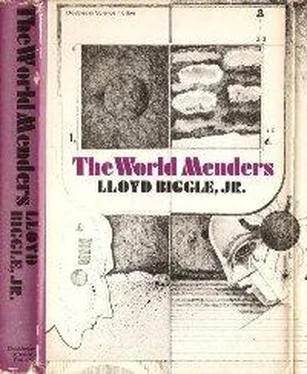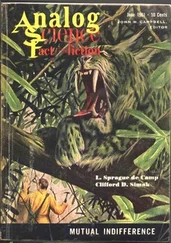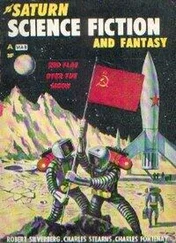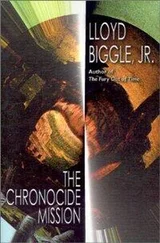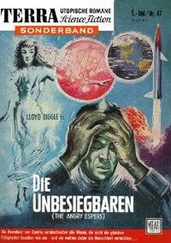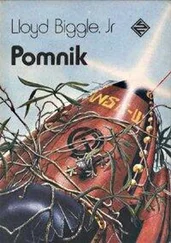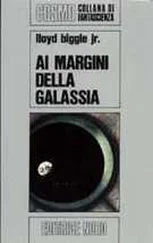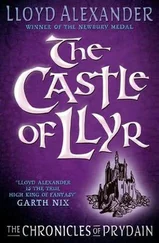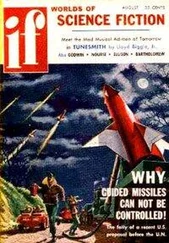Lloyd Biggle Jr. - The World Menders
Здесь есть возможность читать онлайн «Lloyd Biggle Jr. - The World Menders» весь текст электронной книги совершенно бесплатно (целиком полную версию без сокращений). В некоторых случаях можно слушать аудио, скачать через торрент в формате fb2 и присутствует краткое содержание. Год выпуска: 1971, Издательство: Doubleday, Жанр: Фантастика и фэнтези, на английском языке. Описание произведения, (предисловие) а так же отзывы посетителей доступны на портале библиотеки ЛибКат.
- Название:The World Menders
- Автор:
- Издательство:Doubleday
- Жанр:
- Год:1971
- ISBN:нет данных
- Рейтинг книги:5 / 5. Голосов: 1
-
Избранное:Добавить в избранное
- Отзывы:
-
Ваша оценка:
- 100
- 1
- 2
- 3
- 4
- 5
The World Menders: краткое содержание, описание и аннотация
Предлагаем к чтению аннотацию, описание, краткое содержание или предисловие (зависит от того, что написал сам автор книги «The World Menders»). Если вы не нашли необходимую информацию о книге — напишите в комментариях, мы постараемся отыскать её.
The World Menders — читать онлайн бесплатно полную книгу (весь текст) целиком
Ниже представлен текст книги, разбитый по страницам. Система сохранения места последней прочитанной страницы, позволяет с удобством читать онлайн бесплатно книгу «The World Menders», без необходимости каждый раз заново искать на чём Вы остановились. Поставьте закладку, и сможете в любой момент перейти на страницу, на которой закончили чтение.
Интервал:
Закладка:
The alarm buzzer emitted a thunderous rasp. At the same instant Strunk’s voice boomed from the intercom. “Full staff—records section.”
“What’s up?” Farrari demanded. “What’s up?” Clough echoed, beaming at him. “The kru is dead. It’ll be the first succession we’ve had an opportunity to observe. We’ve waited a long time for this—a mighty long time! Why, the study teams have been posted and briefed for years. This is quite a coup for you, young man. If you hadn’t spotted that, we might have missed our chance.”
Farrari turned to see a wave of the base’s high brass charging through the door, Coordinator Paul in the lead. He muttered. “And I’d better be right.”
A short time later he found himself sharing a dais with the teloid projection and lecturing about the drapery that he himself had first seen only twenty minutes before. His audience seemed skeptical despite Heber Clough’s angry shouting about the Vacant Throne, the Riderless Steed and the Missing God, and peppered Farrari with questions. He kept his temper in check with difficulty. He was eager to begin his own analysis of the entire work, and instead he had to waste his time explaining the significance of what was, artistically, the least interesting picture of the group. Of all of the scenes, only the last had been produced with an absolute minimum of skill.
Then Jan Prochnow mounted the dais and peered searchingly into the projection. “I agree,” he announced. “It’s perfectly obvious. I can recall a number of similar instances. The kru will be conveyed to his eternal resting place behind whichever of the tower eyes he’s selected, his subjects will eulogize the glorious events of his reign as depicted here, and then—this is only a guess, mind you—this drapery will be replaced with a blank one signifying the coming reign of the new kru, who will, of course, record his own glorious deeds.”
“You have your assignments,” Coordinator Paul said. “Let’s go to work.”
Farrari claimed his teloid cube and slipped out of a side exit before a converging wave of well-intentioned staff members could overwhelm him with congratulations. He returned to his workroom and eagerly snapped the cube into his own projector.
Unhesitatingly he pronounced the tapestry a masterpiece—if tapestry it was, he could think of no better word for it. The pictures had been screened onto the finished cloth, and their outlines were fuzzy where dyes had run together. They were obviously the work of many hands, and a careful appraisal convinced Farrari that the kru’s long reign had outlasted at least three generations of artists.
The draftsmanship was excellent, the vivid colors breathtaking, the composition masterful. He puzzled long over the fact that the same culture that produced these exquisite, long-lasting dyes was so inept at paint making. The most recently retouched painting paled beside this tapestry.
He spent most of the day scrutinizing the scenes, and when finally he reached the bottom, dismissed the crudely-fashioned final scene with a shrug, and sat back exhausted to switch off the projector, he realized with a sudden twitch of conscience that once again he had forgotten the people. The essential ingredient of all of these brilliant pictures was the blood of the olz, who were nowhere represented. None of the three hundred and seventeen scenes portrayed a single olz.
He turned on the projector again, intending to dictate his impressions of the tapestry but his eyes kept wandering to the triangular-leafed zrilm shrubs, or to the branch of zrilm one official—a durrl—carried in a protective holster strapped to the flank of the gril he was riding, or to the tall hedges of zrilm that frequently appeared in the background. Were the artists satirically including the olz by proxy through the symbol of their subservience? He thought not. Zrilm was a common shrub, and the artists drew what they saw.
They drew what they saw, but they did not see the olz.
Farrari abandoned the projection. He paced his workroom briefly and then looked into the deserted corridor, realizing with a start that it had been hours since anyone had passed his doorway. Everyone else was furiously occupied. The kru’s death was probably the most significant event that had occurred since IPR had arrived on Branoff IV, and the staff would ponder it and project it and perhaps even make it the basis of a future planning that might cut short those horrendous two thousand years. To Cultural Survey AT/1 Cedd Farrari, the only member of the staff without a special assignment, it meant only one more work of art to evaluate and classify.
He went to his sleeping room, sprawled on his couch, opened the IPR field manual. As he flipped past the capitalized truisms, his mind began to formulate arguments against them. REVOLUTION IS A CONCENTRATED EXCESS OF EVOLUTION? Not to Cedd Farrari. Evolution connotated a prolonged and inevitable natural process; revolution a violent surge of emotion. He suspected that too many of the Bureau’s sacrosanct slogans were based more upon a contrived association of words than a distillation of ideas. FUNDAMENTAL TO ANY DEMOCRACY IS THE PEOPLE’S RIGHT TO BE WRONG? Perhaps no democracy had survived the abolishment of that principle, but neither could a democracy survive if its people erred consistently.
He was beginning to hate those blocks of leering capitals. What could this presumed wisdom mean to a people doomed to two thousand years of misery? Even that figure was only a Bureau estimate, a guess, and Farrari’s private hunch was that far too many of the Bureau’s guesses were proving overly optimistic. Otherwise its Supreme Headquarters would not have snatched so eagerly at the possibility of Cultural Survey miracles.
He slammed the manual to the floor and went for a walk. Many of the workrooms were empty, but the crowded conference rooms reverberated with talk and argument. Farrari strode past them scowling. He circled back toward his own rooms and saw Jan Prochnow still seated by the dais in the dining room. He had obtained another teloid of the tapestry, and he was staring into the projection, head tilted back, eyes narrowed, lips pursed in fierce concentration.
Farrari paused. “Is there any significance to the fact that this tapestry is covering the large relief of the kru above the main entrance?” he called.
Prochnow started, scowled resentfully at Farrari, and then turned to study the projection. “It may be the handiest place to hang the hinge,” he said. “On the other hand, that relief is the one our agents call the ‘moving picture’ because it’s changed periodically. Interesting question.”
“The kru’s most recent portrait is always on display there,” Farrari persisted. “What’s the chance that they took it down when the kru died, and the tapestry is covering the blank space until his successor is crowned?”
“Interesting thought,” Prochnow mused. He scrambled to his feet. “I’ll see what I can find out.”
Farrari looked in on Heber Clough and found him poised intently over a genealogical chart. Farrari said accusingly, “Don’t tell me you’re still trying to guess the next kru!”
Clough regarded him irritably.
“Why don’t you just relax and wait a day or two?” Farrari asked. “For that matter, why all the conferences? Why not just observe and then compare notes afterward?”
“A succession of power is the most critical operation in any government.” Clough said. “Some manage the change easily, some always become embroiled in revolution or power struggle, and with others it’s unpredictable. We have to plan our observations carefully, so as not to overlook anything, because it’s often the best time to bring about a change of direction. In some societies it’s the only time. Now go away and let me work. The kru had nineteen sons, but we don’t know how many are still living, or mho the survivors might be. It’s a pretty problem.”
Читать дальшеИнтервал:
Закладка:
Похожие книги на «The World Menders»
Представляем Вашему вниманию похожие книги на «The World Menders» списком для выбора. Мы отобрали схожую по названию и смыслу литературу в надежде предоставить читателям больше вариантов отыскать новые, интересные, ещё непрочитанные произведения.
Обсуждение, отзывы о книге «The World Menders» и просто собственные мнения читателей. Оставьте ваши комментарии, напишите, что Вы думаете о произведении, его смысле или главных героях. Укажите что конкретно понравилось, а что нет, и почему Вы так считаете.
